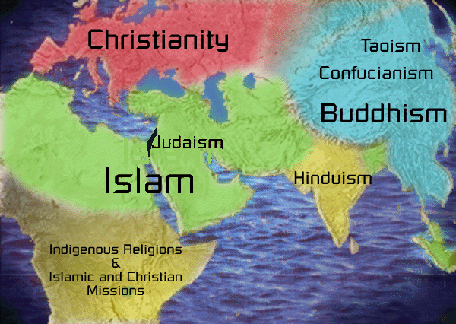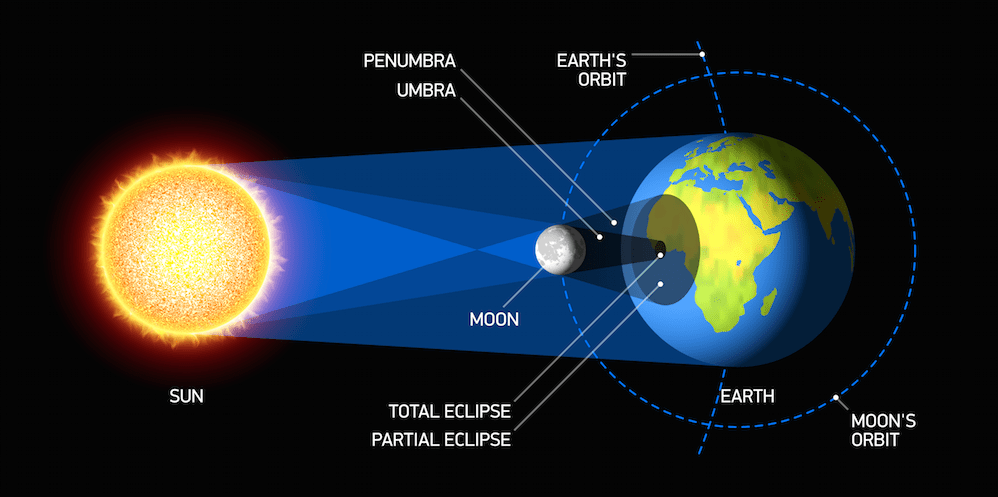
Acts 17:22-23 "So Paul stood in the midst of the Areopagus and said, “Men of Athens, I observe that you are very religious in all respects. 23 For while I was passing through and examining the objects of your worship, I also found an altar with this inscription, ‘TO AN UNKNOWN GOD.’ Therefore what you worship in ignorance, this I proclaim to you."
Introduction:
On August 21st, 2017, many people throughout the United States watched a solar eclipse. The wonder of the moon passing between our earth and the sun captured imagination and scientific curiosity. Where we live, relative to our location on the earth, the moon blocked out about 80% of the sun (due to being in what is called the "penumbra" of the moon's shadow).

A strange and faint shadow clung to the outside surroundings. For a brief moment, the day-time sky was dominated by a faint shadow.
Whenever the Apostle Paul enters Athens Greece, he entered into the cultural and intellectual center of what had by that point represented the former glories of Greece. Rome was in power and the ancient Greek philosophies of the Stoics, Epicureans and others dominated the city. The intellectuals of the day did not realize they were dwelling in the shadows. They thought they had true light.
The torch of reason burned on the mixed fuel of philosophical thought and paganism. God's general revelation of Himself, known to all people, was intermixed in with what had by that point become the warping of the truth. Paul came to bring forth the true light of the Gospel as so centered around the death and resurrection of Jesus.
All religions, philosophies and ideologies are striving to grab hold of a particular principle or truth that is a shadowy counterpart to the real sets of truths that is Christianity. All religions are a mixture of God's general revelation, man-made ideas, superstition and elements of spiritual darkness. As we can see in the opening text above, Paul indicates that his audience had an altar dedicated to "The Unknown God", quite literally in the Greek "Agnostos", from whence we derive the English word "Agnostic" to describe those who assert that one cannot know whether we can know anything about God.
In today's post I wants us to consider to Eastern religions and their respective central projects: Hinduism and Buddhism. As will be seen, each of these strive to grab hold of a principle that is but a shadow of the reality proclaimed by Biblical Christianity.
Hinduism's Main Project And Shadow - Union With Whatever Is Divine. Christianity's Guarantee and Reality - Union With God Through Jesus Christ
C.V. Matthew, a specialist in the belief system of Hinduism, writes in his book: "The Saffron Mission. A Historical Analysis Of Modern Hindu And Missionary Practices" (Cambridge Press. 1999):
"Roughly 8 “sects” of Hinduism. Hinduism portrays itself as an all-inclusive, tolerant, multi-path system to the Ultimate Religion. All Hindus view themselves as the society of the living God. They desire immersion in all of life’s activities while trying to gain, on their view, good karma in this life. For the Hindu, union with what they deem “Universal Soul”. Hinduism is as much about the Indian culture, language and way of life as the rituals."
It needs to be understood that in this post, we are painting with a very broad brush. Nevertheless, to get to the root of Hinduism's main goal, one could say that all the rituals, the 330 million deities, the various sects, the various holy books (Vedas, Upanishads and the like) are all aimed at one thing: escaping the cycle of birth/rebirth and to find union with the Divine principle they call "Brahma".
In Hinduism, people are endlessly born, dying and being reborn as different life forms. Evil and sin are illusions or “maya”. The goal of Hinduism is to come to a union with the impersonal “all” or “Brahma”, thus getting past the illusion of good and evil. Depending upon how morally one lives in this life and how much ritual one participates in will, in the Hindu mind, determine whether one has "good Karma" or "bad Karma". Karma is a Hindu word referring to "works or deeds" and is essentially a debt-based system of works salvation.
Apologist and author Ravi Zacharias notes about Hinduism: “For the Hindu, karma-the moral law of cause-and-effect-is a life-defining concept. Life carries its moral bills, and they are paid in the cyclical pattern of rebirth until all dues are paid in full. Hinduism here conveys an inherited sense of wrong, which is lived out in the next life, in vegetable, animal, or human form. This doctrine is nonnegotiable in Hindu philosophy.”
Sanasara is likened to a wheel of sorts, wherein a person keeps literally going around in circles. "Sanasara" (sometimes spelt: “samsara”) and its related concept "karma" portray a person trying to live good enough in this life to have a better spot in the next. The goal of Hinduism is to escape "Sanasara" and to achieve "Moksha" or union with the Universal Soul.
The Bible paints a different picture. There was a literal Adam and Eve and a serpent named Satan who came to tempt them. Passages such as Romans 5:12 summarize for us the events of the fall, namely that through one man, sin entered into the world, and through sin came death upon us all. In contrast to Hinduism, evil and sin are not illusory. Instead, they’re realities that intruded into the perfect creation made by God (See Genesis 3:7-21; 1 Kings 8:46; Rom. 5:11-21)
In Biblical Christianity, we find that God has provided Himself in the Person of the Son taking unto Himself a truly human nature in His incarnation as Jesus of Nazareth. Jesus Christ is the One way through which all by faith can have union with God through Him (see John 14:6; 2 Peter 1:3-4). This union is a relational union.
Unlike Hinduism, the follower of Jesus Christ does not go out of existence or meld their human nature into God's Divine nature. Instead, the Christian comes to participate in and with Christ, Who is Himself united to the Christian by way of His human nature while at the same time ever united to the Father and the Holy Spirit by way of His Divine nature. Only Christianity guarantees reconciliation, relationship and thus true reunion with God in Christ.
Buddhism's Central Project And Shadow: Refuge From Distress And Pain. Christianity's Promise And Guarantee: Redemption And Forgiveness Caused By Sin And Pain
Jacky Sach, a practicing Zen Buddhist, writes in her book: "Essential Buddhism - Everything You Need To Understand About This Ancient Tradition" (F+W Publications, 2006), concerning the central aim of Buddhism:
"Our minds can be our worst enemies. When we desire something our egos can come out in full force and feel threatened at the idea of not getting what we want. We can become irritable, selfish, and stressed. Whether our desire is for a new home, a new job, a larger piece of pie, or peace of mind, the threat of not achieving our desired objective can turn us into unruly and unpleasant individuals. Trying to turn over our desires, to find a place in life where we are content just to be, filled with compassion and love for our fellow humans and our surroundings, is absolutely heaven on earth."
Siddharta Gautama, the founder of Buddhism, was born to an affluent family around the time of 566 b.c. When he came to be aware of the world outside his palatial home, Gautama witnessed suffering, pain and hardship. He saw the injustice of suffering and concluded that the problem lied within each person by way of their desires. By a process of a seven-year journey of introspection, Gautama became renamed as "Buddha" or "the enlightened one". His claim was that by becoming detached from one's desires and discovering that ultimate reality is nothing, one can achieve "Nirvana" or a semblance of heaven here on earth.
The problem with Buddha's teaching was that he was teaching a half-truth. Surely the issues of humanity's problems are found within man, but the way he described it and the solution he proposed was way different than from what we see in Biblical Christianity. Buddha attempted to achieve his project apart from any belief in any deity, let alone the true and living God.
In the end, Buddhism is a system of practice and belief that tries to reform and purify humanity without God. By detachment from everything, including desire, the Buddhist claims their own brand of salvation.
Biblical Christianity proclaims the truth of how sin and evil are real (Genesis 3:7-15; 1 Kings 8:46; Romans 3:23; 5:11-21) and how Jesus Christ came to destroy the works of the Devil (1 John 3:8), redeem sinners who believe by grace (John 3:16; Eph 2:8-9) and to make all who follow Him by faith into new people (2 Cor. 5:17). In Christianity, rescue from sin involves not detachment but reattachment to the God who made me and redeemed me (2 Corinthians 5:15-21).
Reality is not nothing but something that God will one day transform into a New Heavens and New Earth, wherein righteousness will dwell (2 Peter 3:13). Heaven is a real place, not a state of mind (John 14:1-3; Philippians 3:20-21). Hell is a real place that can be avoid in Christ by faith but will be occupied by those who persist in their rejection of God and Christ and die in their sins (Luke 16; John 3:36). Only in Jesus Christ is true forgiveness, freedom and redemption found (John 8:12, 36; Ephesians 1:7).
Closing thoughts
Today we considered shadows of truth that are found in two world religions: Hinduism and Buddhism. We also noted that despite their best efforts, all religions outside Christianity fail to arrive at the central purposes of their respective projects. In Jesus Christ alone is found true union with God by faith and true redemption and forgiveness that is caused by sin. As we consider the imitations and comparison to the genuine article, we can come to better appreciate all that God offers in Jesus Christ through the Old and New Testaments.

Wow, great blog post. I'd like to draught in the same manner, spending a lot of time and effort to produce a top-notch article. Please go to Astrology App development company. I will soon be writing some posts that were inspired by this one.
ReplyDelete